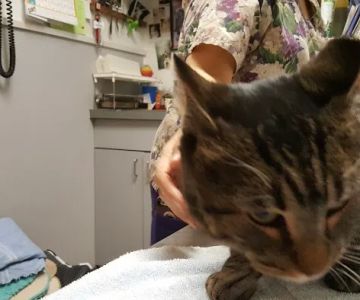- 1-overview-of-veterinary-practice-in-usa-and-canada
- 2-educational-and-licensing-requirements-for-indian-veterinarians
- 3-step-by-step-process-for-licensing-in-usa
- 4-licensing-and-registration-process-in-canada
- 5-challenges-and-personal-experiences
- 6-conclusion-and-recommendations
1. Overview of Veterinary Practice in USA and Canada
The veterinary profession in the USA and Canada is governed by strict licensing and educational standards to ensure animal health and public safety. For Indian veterinary doctors aspiring to practice in these countries, understanding these systems is crucial. The licensing process involves validation of credentials, exams, and sometimes additional training or internships.
Both countries have recognized the importance of foreign-trained veterinarians and have structured pathways for them to join the workforce, albeit with rigorous requirements to maintain high standards.
2. Educational and Licensing Requirements for Indian Veterinarians
Indian veterinary graduates need to have their educational qualifications evaluated by credential assessment agencies recognized in the USA and Canada. The degrees should be equivalent to the Doctor of Veterinary Medicine (DVM) degree granted by accredited institutions in these countries.
Additionally, language proficiency tests such as TOEFL are often required to demonstrate effective communication skills, a critical component of veterinary practice.
3. Step-by-Step Process for Licensing in USA
To practice veterinary medicine in the USA, Indian veterinarians typically follow these steps:
- Credential Evaluation: Submit educational transcripts to the Educational Commission for Foreign Veterinary Graduates (ECFVG) for equivalency assessment.
- ECFVG Certification: Successfully complete the ECFVG program, which includes basic science exams, clinical competency assessments, and practical skills tests.
- North American Veterinary Licensing Examination (NAVLE): Pass the NAVLE, a comprehensive exam assessing veterinary knowledge and skills.
- State Licensure: Apply for a license from the veterinary board in the state where you intend to practice, as licensing requirements may vary by state.
This structured process ensures veterinarians meet the professional standards required for safe and effective animal care.
4. Licensing and Registration Process in Canada
In Canada, Indian veterinary doctors must complete a similar but distinct pathway:
- Credential Assessment: Verification of veterinary education by the Canadian Veterinary Medical Association (CVMA) through the National Examining Board (NEB).
- National Examining Board (NEB) Exams: Pass a series of written and practical exams designed to assess competency.
- Provincial Licensing: Register with the provincial veterinary regulatory authority where you wish to work, as each province may have additional requirements.
Some provinces may require additional training or supervised practice before granting full licensure.
5. Challenges and Personal Experiences
Many Indian veterinary doctors face challenges such as adapting to new medical protocols, navigating complex licensing systems, and managing cultural differences in practice settings. However, success stories abound, with many veterinarians establishing rewarding careers after persistent effort.
For example, Dr. Anjali Sharma from India shared how she overcame multiple exam attempts and gained invaluable clinical experience through internships in the USA before obtaining full licensure. Such stories highlight the importance of resilience and proper guidance throughout the process.
6. Conclusion and Recommendations
For Indian veterinary doctors wondering how can Indian veterinary doctors practice in USA/Canada, the key lies in understanding the licensing requirements and preparing diligently for credential assessments and examinations. Utilizing resources and expert legal advice can significantly ease this journey.
To access comprehensive guidance, licensing resources, and legal support tailored for veterinary professionals, consider visiting ESPLawyers. Their expertise can help navigate complex immigration and professional licensing landscapes, making your transition smoother and more successful.











